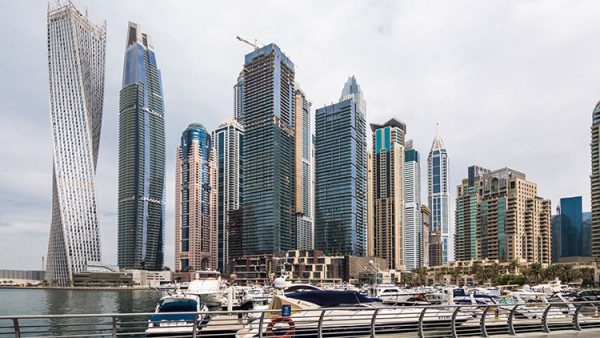More and more companies are flocking to the United Arab Emirates (UAE) thanks to friendly tax regimes such as no corporate taxes, no personal income tax. However, the country faces the challenge of tax transparency management.
With respect to such an issue, UAE Economic Substance Regulations were introduced in 2019 in an effort to exclude the country from the list of non-cooperative jurisdictions. The introduction is involved in monitoring businesses with harmful tax practices. Ras Al Khaimah (RAK) companies also fall under the UAE regulations.
*** RAK is one of seven state members composing the UAE. We will discuss more the emirate under the substance requirement in section 5 of the article.
1. Overview of the UAE Economic Substance Regulations

On 30th Apr, 2019, the Cabinet of UAE Ministers introduced Resolution No. 31 to apply the Economic Substance Regulations (ESR) to businesses in specific sectors. On 10th Aug, 2020, the UAE issued Resolution No. 57 to amend and replace the previous one.
The country made the resolution in accordance with the directives given by the Organisation for Economic Cooperation and Development (“OECD”) Forum and the European Union Code of Conduct Group (“EU COCG”) to counter harmful tax practices.
Economic Substance Regulations provide a set of rules ensuring all business transactions to be associated with business purposes or business substance. All UAE onshore, offshore and freezone companies which conduct relevant activities must demonstrate their actual profits corresponding to substantial economic presence in the jurisdiction.
2. Scope of the application
There are certain types of business entities subject to the Economic Substance Regulations, including “licensee”. Some exemptions are also specified in the law.
Your company will be considered as a “licensee” if:
- It is registered in the UAE, including a Free Zone and a Financial Free Zone;
- It is either a corporate legal entity with separate legal personality from its owners or an Unincorporated Partnership; and
- It carries out Relevant Activities.
In case of a branch, your branches will be within the scope of UAE Economic Substance Reporting requirements in certain situations. Particularly, your company is registered in the UAE and the branches don’t have separate legal personalities. In this case, you must report Relevant Activities of your company and its branches in a single Notification or Economic Substance Report.
On the other hand, your company is a foreign entity with branches registered in the UAE and having separate legal personalities, at the same time the branches are not tax residents in foreign jurisdictions, then all relevant activities must meet the regulations.
Your business entity is NOT considered as a licensee if it is a natural person, a sole proprietorship, or a trust and foundation.

Relevant Activities
Your company must comply with the UAE Economic Substance Regulations if it carries out the following activities:
- Banking business
- Insurance business
- Investment fund management business
- Lease-finance business
- Headquarter business
- Shipping business
- Holding company business
- Intellectual property business
- Distribution and service center business
The UAE government uses a “substance over form” approach to determine if your business entity carries out a Relevant Activity. It is regardless of whether such activity is contained in the company’s commercial license or permit.
A licensee which carries out more than one Relevant Activity in the same financial year must demonstrate economic substance for each activity. If it doesn’t perform any Relevant Activity during the relevant financial year, there is no need to meet Economic Substance reporting requirements.
Exemptions
The ES regulations are not imposed on the following licensees:
- Licensees that are non-UAE tax residents;
- Investment funds and their underlying Special Purpose Vehicles or investment holding entities;
- Business operating only in the UAE that is fully owned by UAE residents and not a part of any multinational group;
- Branches of foreign entities whose all relevant income is subject to tax in foreign jurisdictions;
- Licensees that have not earned income from a relevant activity.
Still, these exempted licensees must submit a Notification form to claim their exemptions to the Regulatory Authorities. Attached to such a form must be sufficient evidence to back up the claim.
3. Guide to UAE Economic Substance Requirements
If being determined as a licensee under the Regulations, you must prove the economic substance of your company. The UAE uses the Economic Substance Test to evaluate the company’s substantial purposes. You also need to submit an annual Notification form and ES report to the relevant Regulatory Authorities.

3.1. Economic Substance Test
Holding company business can experience a reduced test, meanwhile, high-risk IP businesses must comply with a stricter test. The rest of the relevant licensees are subject to the general one.
General economic substance test
A licensee must satisfy the following test:
- The licensee and relevant activities are directed and managed in the UAE;
- The Core Income Generating Activities (CIGAs) are conducted in the UAE. Note that each relevant activity has a different set of GIGAs; and
- The licensee has enough employees, physical assets, and operating expenditure in the UAE (***).
To be considered directed and managed in the UAE, a licensee needs to hold enough board meetings in the UAE. Each meeting must satisfy the following criteria:
- A minimum number of directors must be physically present in the UAE;
- Meeting minutes must be maintained in the UAE; and
- The attending directors must have adequate related skills and expertise.
There are also some considerations regarding the employees’ resident status:
- Employees who perform the CIGAs need to be resident in the UEA;
- Non-resident employees will be included in a licensee’s scope of economic substance requirements if:
- The relevant activities are conducted while the employees are physically present in the UAE;
- The licensee is responsible for the employees’ relevant costs.
Economic substance test for holding company business
Under the ES regulations, holding company business is defined as a business which:
- Only holds equity in other companies or entities; and
- Only earns dividends and capital gains as income.
An entity that holds other kinds of assets or earns other kinds of income is not considered a holding company business under ES regulations.
A holding company business must satisfy the following reduced test:
- It complies with all the existing compliance requirements under the applicable regulations; and
- It has adequate employees and physical assets to perform the activity.
- It is not required to demonstrate adequate expenditure and management control in the UAE.
For high-risk IP business
When an intellectual property (IP) business is considered high-risk, it is subject to a stricter test.
A licensee is a high-risk IP business when:
- It does not create its intellectual property;
- It acquires an IP asset in consideration for funding research and development by another party located in another foreign country, or gets it from a connected party; and
- It licenses the asset to at least one connected party or gains income from the asset as a result of activities conducted by connected foreign parties.
A high-risk IP business must satisfy the general test at first, and further meet the following requirements:
- It has a high degree of control over the development, exploitation, maintenance, protection, and enhancement of the IP Asset; and
- It has to submit additional proof and documents.
The documents must demonstrate that:
- The licensee has adequate full-time employees with the necessary qualifications who permanently reside and perform their activities in the UAE;
- It has a business plan showing the reasons for holding the IP in the UAE; and
- Relevant decision-making has taken place in the UAE.
3.2. Economic Substance Reporting
The UAE Economic Substance Regulations requires business entities to submit Notifications and Economic Substance Reports to their Regulatory Authorities.

a. Responsible departments for the ESR implementation
The Cabinet of Ministers appointed some departments to act as Regulatory Authorities and National Assessing Authority to manage and enforce the ESR implementation.
Regulatory Authorities. The appointed Regulatory Authorities will be the initial department to receive and review the reporting information from UAE companies. Below are the main functions of the authorities:
- Collect Notifications and Economic Substance Reports;
- Collect all relevant information as required for the reporting;
- Check if all collected information are sufficient and accurate;
- Report all collected information to the National Assessing Authority for final evaluation.
The National Assessing Authority. The UAE appointed The Federal Tax Authority as the National Assessing Authority to determine whether UAE companies meet the ESR or not. The authority also exchanges the information with the competent authority for the evaluation. Additionally, it will implement the penalties on companies which fail to comply with the requirements.
b. How to file
Licensees submit the Notification and ES report electronically on the new UAE Ministry of Finance Portal. UAE companies which have already submitted directly to their local authorities need to re-submit the documents on the portal.
c. Reporting information
Overall, in the ES report, a licensee will need to include the following information:
- The relevant activity;
- The amount and type of earned income in relation to the relevant activity;
- The amount and type of expenses in relation to the relevant activity;
- The UAE-based assets used for the relevant activity;
- The number of full-time local employees with sufficient qualifications who carry out the relevant activity;
- Other requested details.
For high-risk IP businesses, they must submit additional information:
- The details of qualifications, experience, and contracts of full-time employees who permanently reside and perform the relevant activities in the UAE;
- A business plan showing the reasons for holding IP assets in the UAE; and
- Evidence of decisions made in the UAE.
d. Timeframes for UAE Economic Substance Reporting
Since the UAE officially published the Regulations in 2019, all UAE companies which launch the businesses on or from 1st Jan, 2019 are subject to the Economic Substance rules. Licensees and exempted licensees must submit an annual Notification form within 6 months and an ES report within 12 months after the end of the financial year.


.webp)



0 Comments